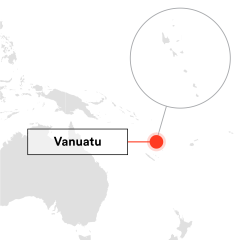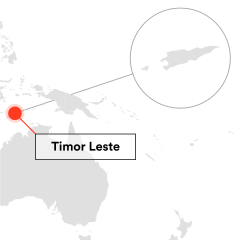Engage with sectoral ministries to end VAWG

Engage with sectoral ministries to end VAWG
Case Studies

In the Pacific Island of Vanuatu, Spotlight Initiative partnered with relevant government ministries and stakeholders to address critical gaps in young people’s knowledge about sexual and reproductive health. Working closely with the Vanuatu Ministry of Education and Training’s Curriculum Development Unit, Spotlight Initiative helped to develop and revise the curricula on Comprehensive Sexuality Education (CSE) and Family Life Education (FLE) to meet international standards. The updated curriculum (available in both English and French) has nine components that focus on human rights, sexual health and wellbeing, gender, relationships, communication and decision-making, and reproductive health, as well as addressing and ending VAWG. It aims to equip young people with the knowledge and skills to make healthy, respectful choices in relationships, as well as transform harmful practices such as underage marriage, teenage pregnancies, bride prices, and accusations of witchcraft.
Spotlight Initiative worked with national partners to develop a Teacher’s Guide for school years 7 to 12 and provide training for 25 ‘Master Teachers’ to roll out the new curriculum for students in years 11 and 12. In addition, the Ministry of Education and Training has a dedicated staff member to build capacity and advocate for girl child protection across the department.
Through a multi-sectoral and coordinated approach, the curriculum is jointly led by the Ministry of Education, the Ministry of Health and the Ministry of Youth, which better enables policy implementation from the national to area council levels. This approach was recognised as transformative and won Vanuatu first place at the Pacific Island Nations on Transformative Agenda Phase II Planning and Family Life Education Regional Conference. Discussions are underway with the Government of Vanuatu to create a career pathway under the Vanuatu Quality Assurance system for delivering out-of-school CSE/FLE. Vanuatu is also developing its first National CSE/FLE Policy, which will institutionalise teaching and provide career pathways in CSE/FLE.
Several elements contributed to the success in scaling up:
- National and local ownership by the Ministries of Education, Health and Youth under a multi-stakeholder framework significantly extended the reach and impact of the CSE curriculum beyond the classroom.
- Focused teacher training by training ‘Master Teachers’ in CSE delivery, equipping them with the necessary skills, confidence and cultural sensitivity to effectively engage students in health and well-being discussions.
- Both in- and out-of-school programmes helped widen access to vital sexual and reproductive health information, particularly for at-risk and out-of-school youth.



In Timor-Leste, Spotlight Initiative addressed growing concerns about reductions in the national budget allocation for gender equality. Following a significant budget cut from 0.6% (US$10.4 million) in 2019 to 0.1% (US$1.4 million) in 2020, Spotlight Initiative actively engaged with different levels of government and civil society organisations, both to increase the allocation of the budget for preventing and ending VAWG, as well as to improve stakeholder engagement with the budgeting process.
“It is hard to understand the state budget specially to analyse it from a gender perspective. The training has increased my understanding to analyse the programme and budget and I look forward to understanding all the budget books.” - Sonia, a Gender Responsive Budget Working Group member participant from the training
As part of this engagement, Spotlight Initiative carried out GBV prevention training with the Municipal Gender Working Group, Sectoral Directors at the municipal and post administrative level, as well as the Gender Working Group from different line ministries. This training included components of gender-responsive budgeting and reached over 300 participants.
Spotlight Initiative's advocacy and training on gender-responsive budgeting with ministries, municipalities and civil society led to a 247% increase in the national budget allocated to gender equality, with 12% of the budget dedicated to gender equality and social inclusion. The increased budget allocation will contribute to improved efforts to end VAWG, as well as the approval of the new National Action Plan on GBV (2022-2032).
Several elements contributed to the success:
- Gender-responsive budgeting improves government accountability by involving people in making recommendations for and tracking the budget process to ensure funds are allocated to VAWG.
- Strategically positioning a gender expert in the parliament meant that the expert could work within government structures to advocate for policies, programmes and initiatives that address VAWG, leading to increased budgets.
- Training and capacity building of CSOs in gender-responsive budgeting enhanced their participation and oversight in budget processes, with an interesting example being the use of innovative methods to simplify complex budgets and increase the confidence and skills of CSOs to engage with the budget.
- Aligning local and national gender action plans and budgets helped maximise limited resources and reduce duplication.







